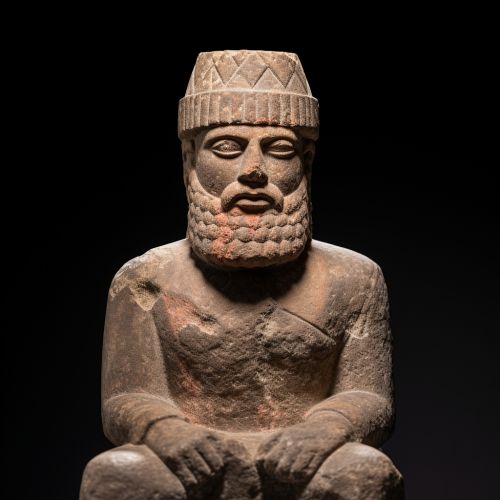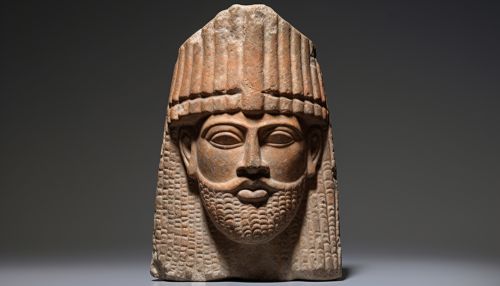Sargon of Akkad
Early Life
Sargon of Akkad, also known as Sargon the Great, was a prominent figure in ancient Mesopotamia. Born around 2334 BC, he is often credited as the founder of the Akkadian Empire, one of the earliest empires in history. His birth name was likely Sharru-kin, which translates to "true king" in the Akkadian language.


Rise to Power
Sargon's rise to power is a subject of much historical debate. Some ancient texts suggest that he was a cupbearer to Ur-Zababa, the king of Kish, before seizing power. Other accounts hint at a violent overthrow, with Sargon leading a rebellion against the ruling class. Regardless of the circumstances, it is clear that Sargon's ascension marked a significant shift in the political landscape of Mesopotamia.
Reign and Expansion
Once in power, Sargon embarked on a series of military campaigns to expand his territory. He conquered neighboring city-states, including Uruk, Ur, and Lagash, effectively bringing all of Sumer under his control. His empire eventually extended from the Mediterranean Sea to the Persian Gulf, encompassing much of modern-day Iraq, Syria, and parts of Iran and Turkey.
Administration and Policies
Sargon is credited with implementing a centralized system of administration, a significant innovation in the ancient world. He appointed loyal followers as governors of conquered territories, ensuring their allegiance and maintaining control over vast regions. He also standardized weights and measures, a move that facilitated trade and economic growth within the empire.
Cultural Influence
Under Sargon's rule, the Akkadian language became the lingua franca of the region, replacing the previously dominant Sumerian language. This shift had a profound impact on the culture and literature of Mesopotamia. Sargon is also said to have promoted the arts and sciences, contributing to the rich cultural legacy of the Akkadian Empire.
Death and Legacy
Sargon died around 2279 BC, after a reign of over 50 years. His death led to a period of instability and infighting among his successors. Despite these challenges, the Akkadian Empire continued to exist for nearly two centuries after Sargon's death, testament to the strength of his rule and the institutions he established.
